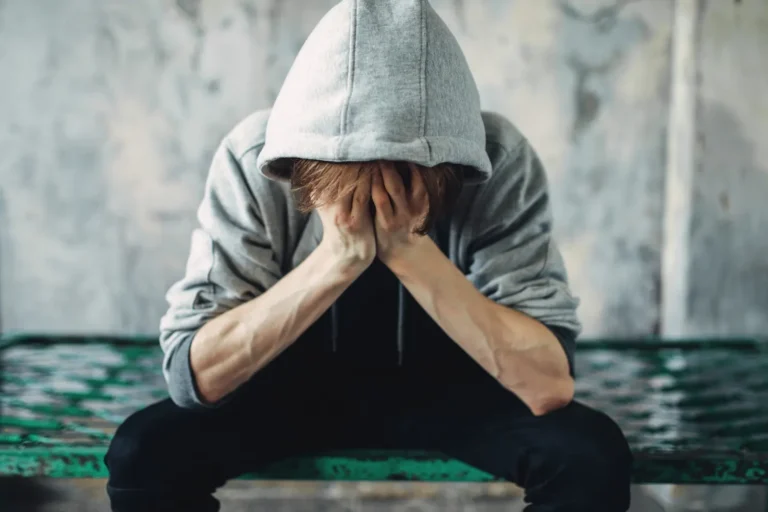
Ithaca Drug Rehab | Addiction Treatment Resources
Local Resources & Information to Start Your Recovery Journey
If you are in the Ithaca area and need help now, call (631) 849-8686
Help Is Available for Those Struggling With Addiction in Ithaca

Located on the shores of Cayuga Lake in the Finger Lakes region of New York, Ithaca is a picturesque city known for its stunning natural surroundings, including waterfalls and gorges. Though people come to Ithaca for its scenic beauty, it’s also home to the esteemed Cornell University and boasts a vibrant arts scene with galleries and theaters.
Unfortunately, drug and alcohol addiction is a growing concern in Ithaca, like much of the country. Drug rehab in Ithaca provides care and treatment to overcome substance abuse and get on the road to recovery. Learn more about addiction treatment resources in Ithaca.
Types of Addiction Treatment in Ithaca
Drug rehab in Ithaca, NY, offers a variety of addiction treatment options to ensure you get the appropriate care at each stage of recovery. Here are some of the options at addiction treatment centers:
The withdrawal experience for different substances can be intense and difficult. Detox environments offer medical care and support to ensure you’re as safe and comfortable as possible while the drug clears your system.
Detox can be an important first step in recovery, but it’s not enough on its own in many cases. Residential rehabilitation or inpatient treatment offers a 24/7 setting with support and structure to address the psychological aspects of addiction.
The unique demands of the healthcare field can lead to addiction for many. Healthcare professionals programs are designed for healthcare workers, by healthcare workers, to provide tailored addiction care.
The appropriate level of care throughout addiction treatment is crucial to your success. This may include wellness-based treatments, outpatient clinic treatment services, mental health therapies, and more to progress through the program.
MAT is an intensive treatment that provides medications to help with cravings, withdrawal symptoms, and other barriers to your recovery, ensuring you can focus on your treatment.
Alumni programs are important for managing triggers and dealing with relapse after you leave the structured environment of rehab. While the programs vary, they may include peer support groups, relapse prevention training, and more.
How to Choose the Right Drug Rehab Center for Your Loved One in Ithaca
Choosing the right drug rehab center significantly impacts your success in recovery. Here are some key factors to consider:
- Accreditation: Choose programs that are fully accredited and licensed to ensure you’re receiving the highest quality of care based on the standards of independent accrediting bodies.
- Individualized care plans: Seek programs that customize treatment plans to your specific needs, including your mental health history, medical history, substance use, and any other co-occurring disorders.
- Qualified staff: Look for rehab centers with fully trained and experienced staff with credentials in addiction treatment to ensure you receive the best care.
- Evidence-based treatment: Choose programs grounded in scientific research, such as MAT and behavioral therapies, to support more effective outcomes.
- Dual diagnosis treatment: If you struggle with co-occurring disorders like anxiety in addition to your addiction, prioritize rehab centers that offer integrated treatment for both conditions.
- Location: There are benefits to attending rehab far from home, such as removing yourself from triggers. For some, it’s better to stay close to home in a familiar environment. Decide which is best for you.
- Insurance coverage: Some insurance providers offer coverage for addiction treatment. Check if the rehab center is in network with your insurance provider and make sure you understand your full financial responsibility.
Continuing Recovery Care & Sober Living Programs in Ithaca
Recovery isn’t a box you can check off when your treatment is complete. It’s an ongoing process that can have challenges, including relapse triggers and risks with the normal stress of day-to-day life. Aftercare programs in Ithaca are designed specifically for this period and offer skill-building exercises to help, such as coping strategies, relapse prevention training, alumni networks, and a support community.
Sober living homes in Ithaca can be part of aftercare for people who prefer a step between rehab and everyday life. While the amenities vary, sober living homes often focus on accountability with house rules, chore lists, mandatory meetings, and a strict no-substances policy.
Contact Admissions TodayEmergency Services for Addiction in Ithaca
Drug and alcohol use can be risky, so it’s important to know where you can turn during a mental health or substance-related crisis. Ithaca offers top-rated emergency hospitals that can stabilize you in these situations. Keep in mind that these are not a substitute for addiction treatment but a crucial lifeline in a crisis.
Community Resources for Mental Health & Addiction
NAMI Finger Lakes
National Alliance of Mental Illness branch for the Finger Lakes region.
Visit siteNew York State HOPEline
Resources for opioid abuse at 1-877-8-HOPENY.
Visit siteIthaca’s 24/7 Crisisline
24/7 crisis support line for suicide prevention and mental health crisis
Visit site
Tompkins County Mental Health Services
Mental health support and services for Tompkins County residents.
Visit site988 Suicide and Crisis Lifeline
Alcoholics Anonymous
SMART Recovery
Refuge Recovery
Narcotics Anonymous
Narcan Classes and Overdose Prevention Training

Local Stats You Need to Know
The deaths related to substances are rising, particularly with overdoses, leading to a three-year drop in life expectancy in the Finger Lakes region from 2013 to 2021.[1] Based on data from the New York State Opioid Annual Report, the region had some of the highest overdose deaths involving heroin at 20 or more.[2]
Throughout the region, overdose deaths nearly doubled. The percentage of total deaths has increased by 13% to 27%.[3] Over half of the overdose deaths involved a legal painkiller prescription rather than illicit drugs.[4]
Tompkins County, which publishes bi-annual data on the number of drug-related deaths, showed 12 deaths from July to December 2023.[5] The annual drug-related deaths have been increasing steadily in recent years.

Sober Activities in Ithaca
If you’re looking for ways to spend your time in Ithaca without involving drugs or alcohol, there are plenty of choices:
- Relax and unwind in Cornell Botanic Gardens.
- Experience the wonders of science at the Sciencenter.
- Go for a hike in Robert H. Treman State Park.
- See the views at Buttermilk Falls State Park.
- Enjoy masterpieces of artwork at the Herbert F. Johnson Museum of Art.
- Experience natural history at the Museum of the Earth.
How to Pay for Addiction Treatment in Ithaca

One of the biggest concerns for people entering drug and alcohol rehab is how they’ll pay for it. Health insurance may cover addiction treatment, but it can vary according to your provider, the rehab you choose, your plan details, and more.
Insurance companies often have in-network healthcare providers that offer services at a reduced cost for insurance plan members. While you can still choose an out-of-network treatment provider for a rehab program, you may be responsible for more expenses for your treatment.
If you don’t have insurance coverage or still have out-of-pocket expenses, there are options. Some rehab centers offer payment plans or other alternative payment arrangements. You can look into grants and scholarships from state-funded programs as well, which can help with the costs of treatment.
Frequently Asked Questions About Attending Rehab in Ithaca
Why Do People Go to Rehab?
The decision to enter addiction treatment is extremely personal. Some people may seek treatment because substance use has negatively impacted their work, their personal relationships, or their academics. Others may get help because of their health or because they feel out of control of their substance use.
How Long Does Rehab Take?
The length of stay in drug rehab can vary significantly according to your progress. The average timeframe for addiction treatment is about 30 days, but it may be longer with detox, aftercare, and other programs.
Will My Personal Information Stay Private?
Many people are concerned about their privacy with rehab, but you don’t have to worry. Your addiction treatment is protected like any other healthcare treatment, including any information you share during therapy sessions.
Start Your Recovery in Ithaca
Reach out to get help for addiction.